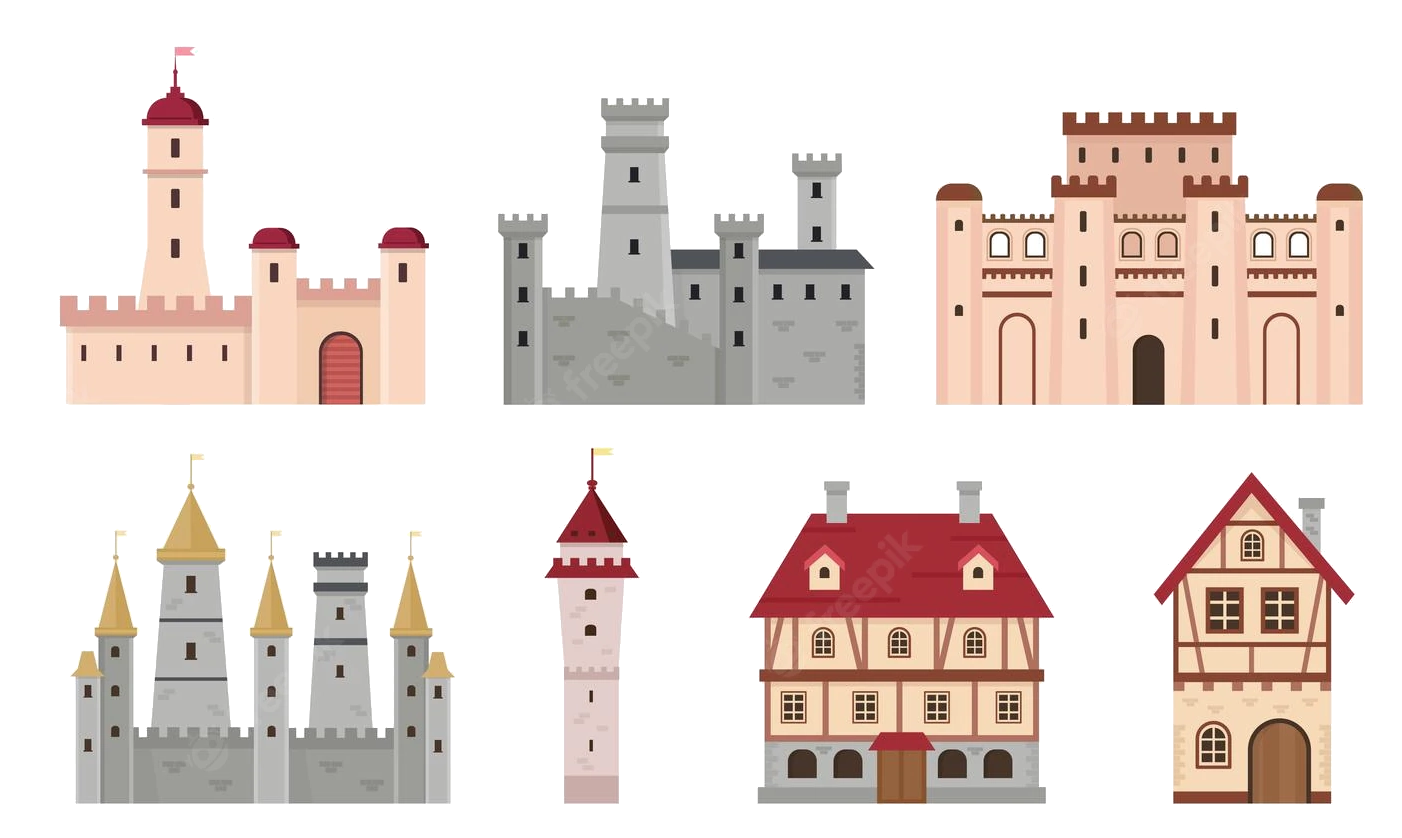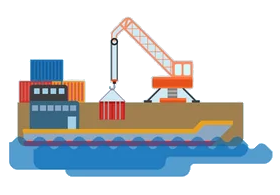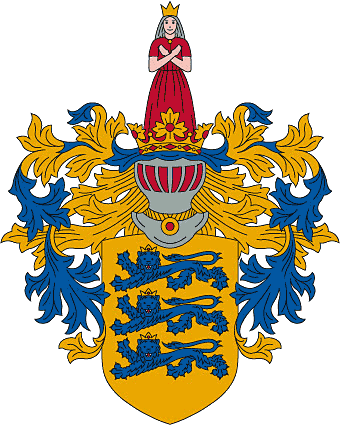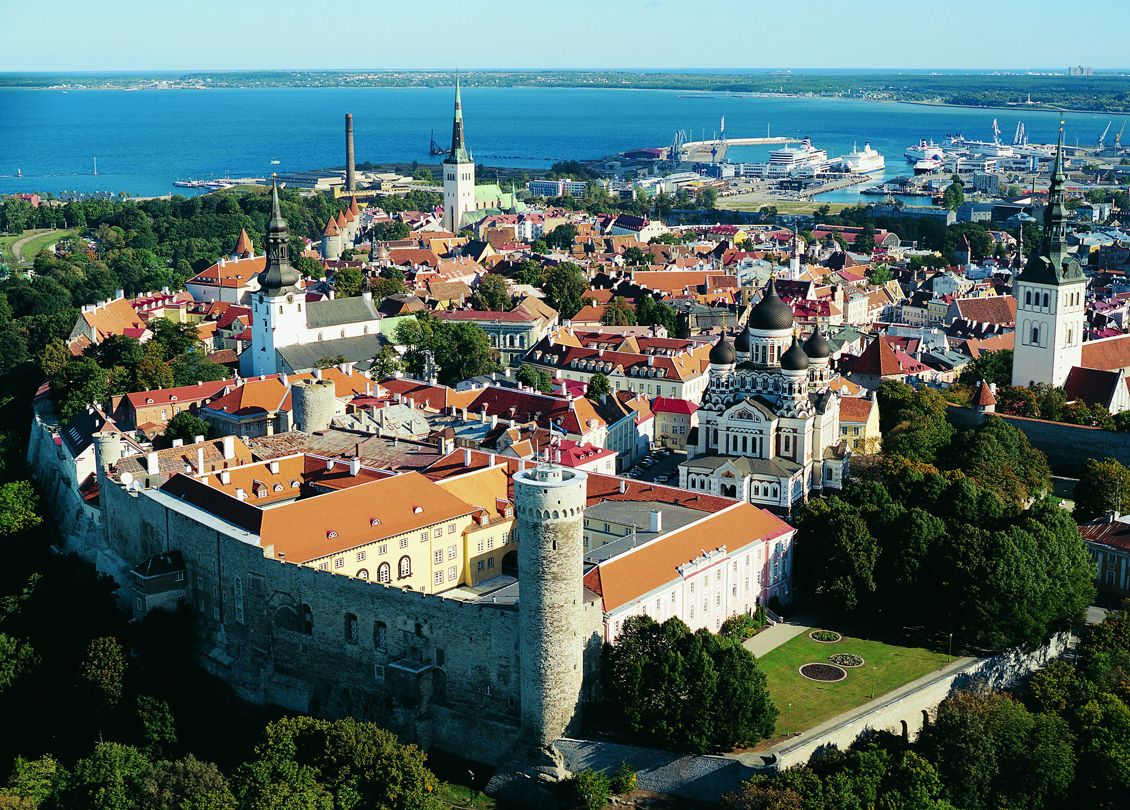German — Chinese

 Estonia
Estonia
 Eurovision Song Contest,ESC
Eurovision Song Contest,ESC

 International cities
*European Capital of Culture
International cities
*European Capital of Culture

 Medieval cities in Europe
Medieval cities in Europe
 Silk road
Silk road

 World Heritage
World Heritage

 Important port
Important port



塔林(Tallinn),旧名日瓦尔(Reval),位于爱沙尼亚西北部,濒临波罗的海,历史上曾一度是连接中东欧和南北欧的交通要冲,被誉为“欧洲的十 字路口”。塔林港是爱沙尼亚最大的港口,与芬兰首都赫尔辛基之间隔了80千米宽的芬兰湾。气候受海洋影响明显,春季凉爽少雨,夏秋季温暖湿润,冬季寒冷多 雪,年均气温4.7℃。共分8个区,总面积为158.3平方公里。2006年全市人口约40万。始建于1248年丹麦王国统治时期,1991年恢复独立后 成为爱沙尼亚共和国首都。塔林古城在1997年被列入联合国教科文组织世界遗产。
塔林最大的湖泊是于莱米斯泰湖(9.6平方千米),是城 市的主要饮用水源。第二大湖哈古湖(Lake Harku)面积1.6平方千米。与许多大城市不同,塔林唯一较大的河流位于塔林郊区的比力塔(Pirita)地区。其河谷因自然的湖光山色而被列为保护 区。一个石灰岩悬崖贯穿整个城市,最高点在城市西南部的诺姆尔区,海拔64米。海岸线长46千米,有3个较大的半岛:高普利半岛(Kopli)、巴扎斯萨 尔半岛(Paljassaare)和卡古马尔半岛(Kakumäe)。(Quelle:http://trip.elong.com/guide/europe-Tallinn-estonia_summary-5441.html)
塔林(爱沙尼亚语:Tallinn)是波罗的海最内部的芬兰湾滨的爱沙尼亚共和国的首都。旧称列巴尔(德语、丹麦语: Reval),沙俄时代名为列威利(Ревель),前苏联时代名为塔林(Таллин)。人口约42万。旧城是列入世界遗产名录的“塔林历史城区”。
2011年当选欧洲文化之都。位于爱沙尼亚北海岸,离北方对岸的芬兰首都赫尔辛基约80公里。
Tallinn [ˈtalːɪnː] (amtlich bis zum 24. Februar 1918 Reval [ˈʀeval], ein im deutschsprachigen Raum auch danach noch gebräuchlicher Name; andere ältere Namen: russisch Ревель = Rewel und vormals Колывань = Kolywan, dänisch Lyndanisse, schwedisch Lindanäs) ist die Hauptstadt von Estland. Sie liegt am Finnischen Meerbusen der Ostsee, etwa 80 Kilometer südlich von Helsinki.
Der Name Tallinn, den die Stadt seit der Eroberung durch den dänischen König Waldemar 1219 im Estnischen trägt, wird üblicherweise von „Taani-linn(a)“ (Dänische Stadt oder Dänische Burg, lateinisch: Castrum Danorum) abgeleitet.(Quelle:http://de.wikipedia.org/wiki/Tallinn)
Tallinn (deutsche Aussprache [ˈtalɪn], estnische Aussprache [ˈtɑlʲˑinˑ]) ist die Hauptstadt sowie das wirtschaftliche und kulturelle Zentrum Estlands und mit rund 430.000 Einwohnern auch die weitaus größte Stadt des Landes. Sie liegt am Finnischen Meerbusen der Ostsee, etwa 80 Kilometer südlich von Helsinki.
Bis zum 24. Februar 1918 hieß Tallinn amtlich Reval [ˈʀeːval], ein im deutschsprachigen Raum auch danach noch gebräuchlicher Name. Im Niederdeutschen lautet der Name Revel.[2] Andere ältere Namen sind russisch Ревель (Rewel) und vormals Колывань (Kolywan), dänisch Lyndanisse, schwedisch Lindanäs.
Den Namen Tallinn trug die Stadt im Estnischen bereits seit Eroberung durch den dänischen König Waldemar im Jahr 1219. Er wird üblicherweise abgeleitet von Taani-linn(a), was „Dänische Stadt“ oder „Dänische Burg“ (lateinisch Castrum Danorum) bedeutet.
タリン(Tallinn [ˈtɑlʲˑinˑ])は、バルト海東部のフィンランド湾に面するエストニア共和国の首都。旧称はレバル(ドイツ語・デンマーク語: Reval)、ロシア帝国時代の名はレーヴェリ(Ревель)、ソビエト連邦時代の名はタリン(Та́ллин)である。人口約42万人。旧市街は世界遺産『タリン歴史地区』に指定されている。
タリンは、フィンランドの首都ヘルシンキ、ロシアのサンクトペテルブルクと同じく、フィンランド湾に面する主要都市の一つであり、2011年の欧州文化首都である。また、中世ハンザ都市の一つとして栄えた港湾都市で、現在もバルト海クルーズの主な寄港地の一つである。2008年にはNATOのサイバーテロ対策機関の本部が置かれた[1]。
フィンランド湾南岸のタリンから、同湾北岸のヘルシンキまでは85km、同湾東奥のサンクトペテルブルクまでは350kmの距離である。[2]
Tallinn (/ˈtɑːlɪn, ˈtælɪn/;[5][6][7] Estonian: [ˈtɑlʲˑinˑ]; names in other languages) is the capital and largest city of Estonia. It is on the northern coast of the country, on the shore of the Gulf of Finland in Harju County. From the 13th century until 1918 (and briefly during the Nazi occupation of Estonia from 1941 to 1944), in languages other than Estonian, the city was known as Reval.[8] Tallinn occupies an area of 159.2 km2 (61.5 sq mi) and has a population of 450,305.[9]
Tallinn, first mentioned in 1219, received city rights in 1248,[10] but the earliest human settlements date back 5,000 years.[11] The initial claim over the land was laid by the Danes in 1219, after a successful raid of Lindanise led by Valdemar II of Denmark, followed by a period of alternating Scandinavian and German rule. Due to its strategic location, the city became a major trade hub, especially from the 14th to the 16th century, when it grew in importance as part of the Hanseatic League.
Tallinn's Old Town is one of the best preserved medieval cities in Europe and is listed as a UNESCO World Heritage Site.[12] Tallinn is the major political, financial, cultural and educational center of Estonia. Often dubbed the Silicon Valley of Europe,[13] it has the highest number of startups per person in Europe[14] and is a birthplace of many international companies, including Skype. The city is to house the headquarters of the European Union's IT agency.[15] Providing to the global cybersecurity it is the home to the NATO Cyber Defence Centre of Excellence. It is ranked as a global city and has been listed among the top 10 digital cities in the world.[16] According to the Global Financial Centres Index Tallinn is the most competitive financial center in Northern Europe and ranks 52nd internationally. The city was a European Capital of Culture for 2011, along with Turku in Finland.
Tallinn (prononcé en estonien /'tɑlʲˑinˑ/), aussi orthographié Tallin2, est la capitale de l’Estonie et le principal port du pays (port marchand de Muuga, port passager Vanasadam). Elle est située sur la côte du golfe de Finlande, qui fait partie de la mer Baltique. Son ancien nom, en usage jusqu’en décembre 1918, est Reval en allemand, ou Revel en russe, qu’on désignait alors en français sous la forme Réval3.
Au 1er juin 2016, la ville comptait environ 447 414 habitants (Tallinnois), ce qui en fait la plus grande ville d’Estonie, sur un territoire de 159,2 km21.
Tallinn (Reval in tedesco, Tallinna in finlandese) è la capitale dell'Estonia nonché suo principale porto, è situata nella costa settentrionale del paese, affacciata sul Mar Baltico, in linea d'aria è divisa da 80 chilometri di Mar Baltico da Helsinki, quest'ultima situata più a Nord, inoltre Tallinn è anche la città più popolosa e maggiore centro economico e commerciale del paese estone.
La sua Città Vecchia medioevale, antico porto anseatico, è divenuta patrimonio dell'umanità dell'UNESCO nel 1997.
Tallinn è stata la Capitale Europea della Cultura per l'anno 2011 assieme alla città finlandese di Turku.[1]
Tallin2 (en estonio, Tallinn [ˈtɑlʲˑinˑ]) es la capital de la República de Estonia y del condado de Harju. Ocupa una superficie de 159,2 km² en los que habitan 446.055 habitantes, lo que la convierte en la ciudad más poblada de Estonia y su principal puerto. Está situada en la costa norte del país, a orillas del golfo de Finlandia, a 80 km al sur de Helsinki.
Tallin es el centro político y económico del Estado. La ciudad alberga la sede del Riigikogu (Parlamento de Estonia), el palacio presidencial y los ministerios. Además, en ella se encuentran radicadas la bolsa y las principales empresas del país.
La ciudad surgió como un puerto comercial en la ruta marítima que unía Europa Occidental con Rusia y conoció su máximo apogeo como ciudad hanseática en plena Edad Media. Tras la independencia de Estonia en 1991 Tallin ha vuelto a resurgir, esta vez por medio del turismo y la apuesta firme por las nuevas tecnologías.
Та́ллин[4][5][6][7][8] (Та́ллинн[9][10][11][12]; эст. Tallinn [ˈtɑlʲˑinˑ]) — столица Эстонской Республики, крупный пассажирский и грузовой морской порт.
Политический, научный, экономический и культурный центр Эстонии. В городе расположены все ветви власти республики, сосредоточено большинство высших и средних профессиональных учебных заведений страны.










